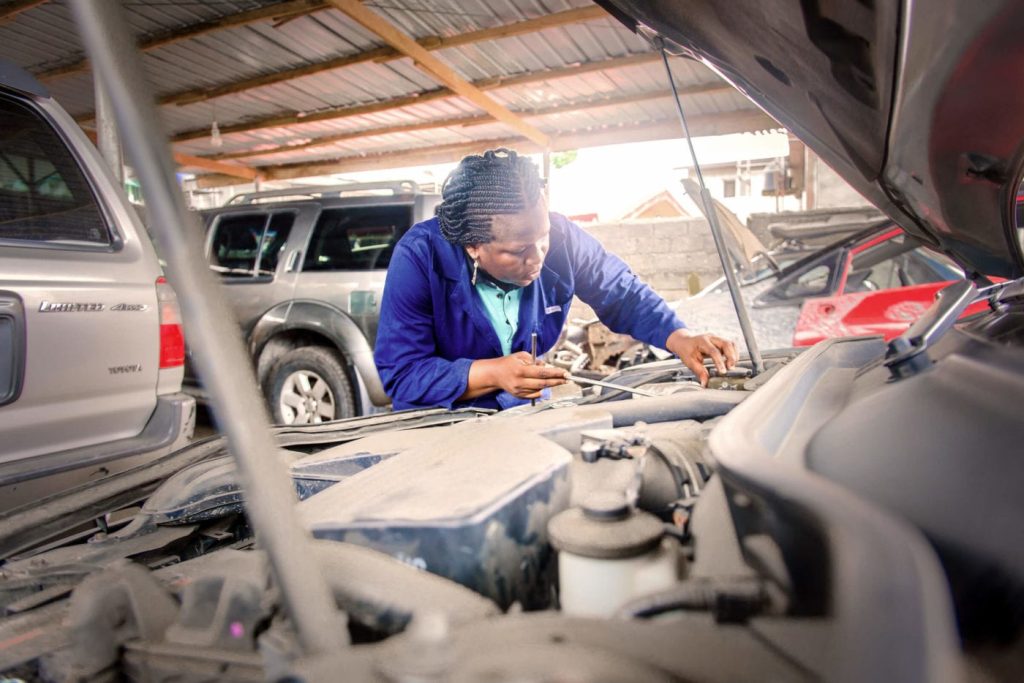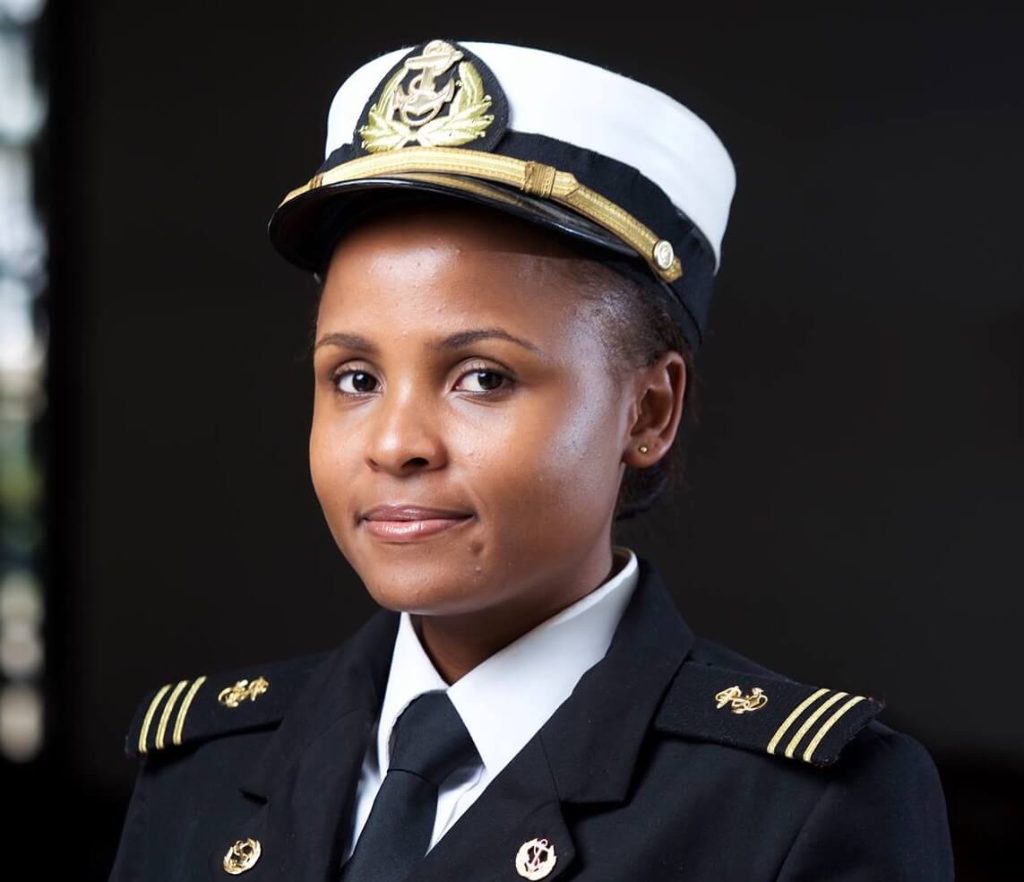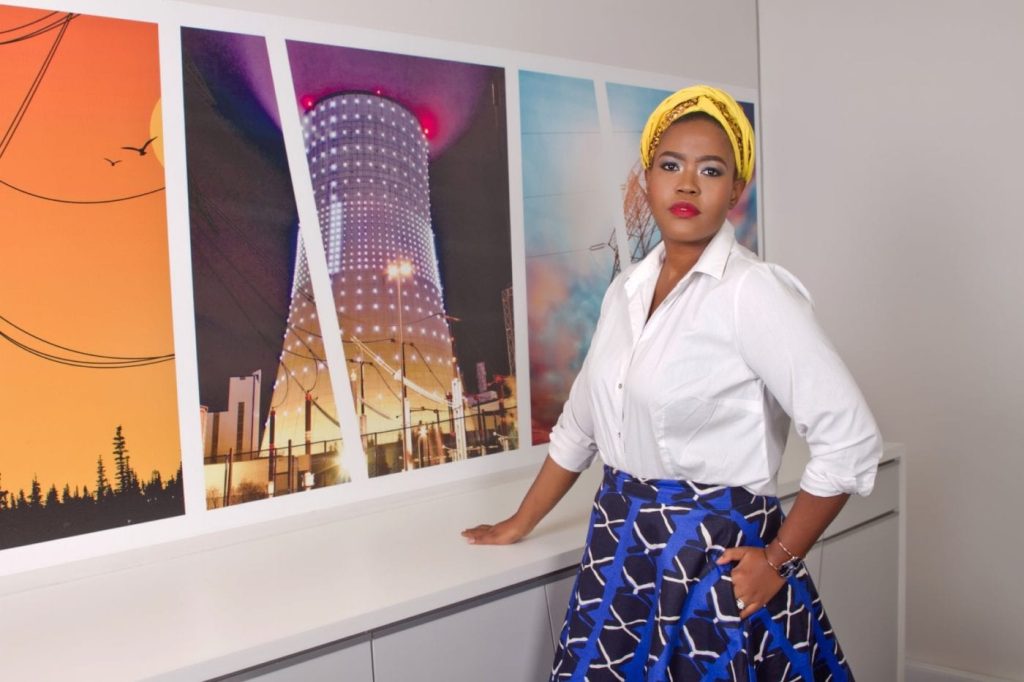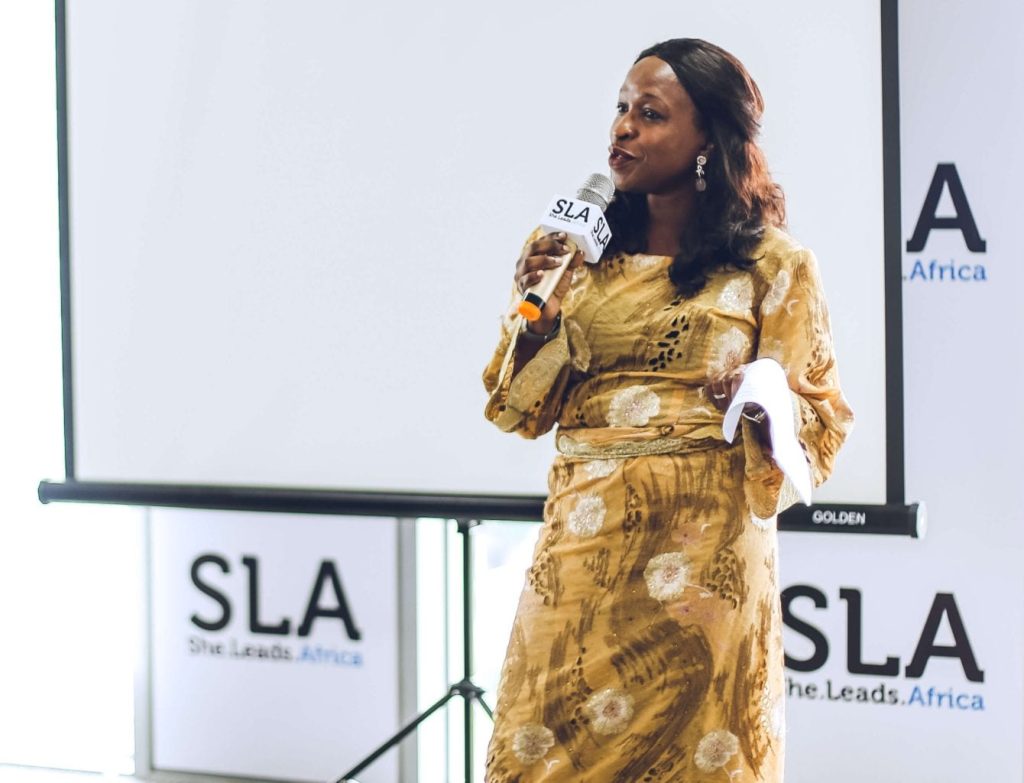4 things to learn from the lady mechanic, Oduwa Agboneni

[bctt tweet=”There is nothing like male-dominated field – Oduwa Agboneni, the lady mechanic” username=”SheLeadsAfrica”] Oduwa Agboneni is an entrepreneur in a seemingly male-dominated field. By the way, she doesn’t believe that crap of “male dominated” anything. Oh yes, we love that kick-ass spirit. She had her first degree in Mechanical Engineering from the University of Benin before proceeding to the University of Lagos for a Masters degree in Geoinformatics. She worked previously in the mechanical industry but since she’s always had a flair for business, she knew it was a matter of time before launching hers. Oduwa is the founder of Neni’s Auto Care. Her services range from car wash and detailing (odour removal, polishing, washing, fumigating) to auto-repair (auto diagnosis, body work, panel beating, electrical) and home based repairs. Presently, her employees are 80% male. Although her male staff are fine with her leadership, most times they tell her that she is the first woman they have worked with. They love Oduwa’s leadership skills so much that they no longer see her as a woman. To Oduwa, this shows that success has no gender neither does leadership in the “male-dominated” field. Her goal is to be the richest black woman in Africa. Oduwa would also love to see her business represented in all states in Nigeria and all countries in Africa. She plans to set up an NGO to empower young ladies in STEM, all while being the best wife and mother. Here are four things SLA contributor Ugochi learned after a chat with Oduwa: 1. The most difficult part of being an entrepreneur isn’t funding but coming up with a sustainable idea Motherland Moguls, you need to get in here. Contrary to perception that funding is the major challenge for business owners, Oduwa believes this is not the case. A good idea will always bring in the money eventually. So dream big, start small and grow steadily. She started from a car wash to developing a garage and now Neni’s Auto Care has evolved to perform other services. Good ideas would eventually attract funds as Oduwa is a 2015 recipient of the Tony Elumelu Entrepreneurship Programme (TEEP) grant. [bctt tweet=”A good idea will always bring in the money eventually – Oduwa Agboneni” username=”SheLeadsAfrica”] 2. There is nothing like “male-dominated” field Oduwa believes that this is a thing of the mind in this part of the world. So, know what you want and go for it. Motherland Moguls, what are you waiting for? 3. It’s a fallacy that you can’t be feminine in a “male dominated” field Now, there’s that phrase again “male-dominated” but this line of thought is absolutely bullocks. According to Oduwa, it’s all about time management. You can still look good, make your hair and be girly irrespective of the industry you operate in. 4. You can ace marriage and career Even though she has always been a career person, Oduwa knew she had to blend it with her marriage. She has learned to create a balance between her work and her home. Ugochi and Oduwa are currently undergoing a training programme together and Oduwa brought her baby along. But you’d never know there is a baby there because Oduwa is so coordinated and still contributes meaningfully in class. Talk about doing well in all areas. [bctt tweet=”#MotherlandMoguls need to dream big and be open to partnerships” username=”SheLeadsAfrica”] Final words to the Motherland Mogul You need to dream big and be open to partnerships. Pay attention to your customers and your employees because you need them to grow your business. Be focused, hard-working, determined and prepared at all times. Live your dreams. Want to see women you know featured on SLA? Tell us what amazing things women are doing in your communities here.
Taking command: Meet Kenya’s first female marine pilot, Elizabeth Marami

At only 27 years, Elizabeth Marami is charting the path less travelled and breaking gender barriers that have been in place for so long. Her courage would see her swim away from the waters of comfort to take up a comprehensive and challenging course in navigation and become a marine pilot. Intimidating and authoritative would be the ideal requirements for her job. However, Elizabeth has a warm personality, petite physique and is soft spoken for a person whose main duty is to take ‘command’. You have the name pilot in your job title, does that scare you? I do not often introduce myself as a marine pilot. It was just recently that I just found myself doing so. I believe it must have leaned more into the fact that I was talking to someone who inspires me and made me feel comfortable saying it. I am just Liz. What influenced your choice of career? I didn’t want to be ordinary. I wanted to pursue something that would challenge me. So when I heard about a scholarship, I could not resist the temptation to apply. The scholarship would have me leave Kenya for Alexandria, Egypt to study navigation. The selection process was very competitive and I couldn’t believe it when I was awarded. I had another offer to study law at the University of Nairobi but my mind was set on navigation. What comprises navigation studies? The degree course takes 5 years. On completion you get certification from a UN body, the International Maritime Organization (IMO). There is also a mandatory requirement of 18 months of sea time for every rise in rank and additional channel training at Kenya Ports Authority (KPA). I’m currently at second officer level. When I joined the training I was one of 2 female students, the rest were men. The training is very extensive with classes running late into the evening. I never had a typical college life of fun and socializing. You are now a marine pilot; describe a typical work day in your life I am a second officer in command. Foreign ships coming to the Kenyan territorial waters are not allowed to navigate on their own and have to have a Kenyan pilot meet them and help navigate. By doing that, you are taking ‘command’. I understand you are the only woman in your workplace. What are the dynamics? Do you prefer working with men as opposed to women? Our workplace is predominantly male. Small things such as bathrooms —where we have separate bathrooms for the male staff and the rest for general public— goes to show the gender disparity that is in the maritime industry. Yet the real struggle is not about the bathrooms but so many other key policies that keep away women from the sea. There is gender imbalance in staffing and training. Consider that women in the maritime industry account for only one or two per cent of the world’s 1.25 million seafarers, according to the International Labour Organisation. The men I work with are great; they encourage me and push me towards achieving my goals. Actually, working with men has helped me understand women better. The men in my workplace affirm, encourage me to be more assertive and don’t compete against me. This has helped me look at women not as competition, but team players in the same frontier. If you weren’t a marine pilot, what would you be doing? I would be working in the fashion industry. I would want to build an international brand that showcases African fabric and authentic designs. Tell me about your blog? Is it an escape from the unwavering tide in your career? I have always loved writing and fashion. Running my blog keeps me normal. I get to wear beautiful pieces and get photographed —which is a world away from my job. Sometimes I wish I could run this blog anonymously and that way I would be able to write about the deep-rooted issues of my life. You wrote extensively about rejection on your blog. Would you comment on that? We were 9 students who were awarded the same scholarship, 8 are male and 1 is female. Part of our course requirements is practical skills in form of 18 months of sea time. All the men in our class have successfully secured sea time on board ships since been offered the opportunity. I have been rejected by various companies in my quest to meet the board requirements for 18 months of sea time so that I can graduate to a captain, 1st in command. My applications often come back with rejections based on my gender which can be very frustrating. Companies are afraid of getting into sexual harassment (legal) suits so they prefer not to hire women. The blog gives me an off-my-chest platform where I can share my frustrations. I have however learnt to be patient. Good things come to those who wait. What does your family feel about your career choice? My family is very understanding. They have been very supportive. It’s only when I started my initiative, ‘Against the Tide’ that my dad became a little concerned. Be on the lookout for the official launch of this initiative. Tell me more about the initiative Against the Tide is my own initiative to see a reasonable gender balance in the maritime industry. Although in its infancy, I want to advocate for policies that favour both genders and allows for equal opportunities in access to opportunities in the industry. I also intend to mentor young girls into believing in themselves and having the courage to get into the profession. I have been speaking to students at various schools about the importance of believing in themselves. You met the President, His Excellency Uhuru Kenyatta. How was it like? The most impressive thing about meeting the president the second time was that he remembered me from the first time we met. On this instance, he commended me on our work before
Linda Mabhena-Olagunju: Entrepreneurs must learn to take calculated risks

[bctt tweet=”If you really want to venture into business you have to risk looking stupid.” username=”SheLeadsAfrica”] At SLA, we are always super excited to interview young African women that are trailblazers, game changers, leaders and positive role models for other African women. Linda Mabhena-Olagunju has all of the above qualities and more. Linda holds two law degrees: an LL.B. from the University of Cape Town and an LL.M. from the University of Aberdeen. She is the Managing Director at DLO Energy Resources, a renewable energy investment and advisory company based in Johannesburg. She is also the founder of the Renewables and Energy Forum in South Africa. Linda has received a number of awards. She received the 2015 Forbes Women Africa Best Emerging Entrepreneur Award. She also recently received the 2016 Elle Boss entrepreneurial award and the 2016 All Africa Business Leadership Award (Young Business Leader of the Year – Southern Africa). Congratulations Linda! Linda shares with SLA contributor Abisola, her challenges in the renewable energy sector, her entrepreneurial journey and her advice for young African female entrepreneurs. Did your legal education and training prepare you for entrepreneurship? I have always said being a lawyer gives you an overview of how a transaction works so that you get to understand the business model of a particular sector industry. Legal practice, not just my law degrees, prepared me to an extent for business. However, lawyers also tend to be risk averse, as our job entails avoiding risk. My legal training made me more afraid to take risks but after a while in the entrepreneurial space I learnt to take calculated risk. For a lawyer, that means risks that have gone through two sets of thorough due diligence. What would you attribute your current success to? Maximized opportunities or sheer good luck? Hard work, coupled with God opening the doors that needed to be opened and placing me in places and situations I had never imagined. I also attribute it to a strong support system. I stress a lot and my parents have been great pillars of support during these periods. My father, especially, who believed in my vision when I had basically no support. My husband also has this innate sense of calm and wisdom. His counsel has been the difference between me quitting at times and staying in the race. [bctt tweet=”Linda Mahbena-Olagunju recently received the 2016 Elle Boss entrepreneurial award ” username=”SheLeadsAfrica”] What three things can help African women achieve their professional or entrepreneurial goals? Self – belief. God/Higher power belief. A real support structure, whether it be family or friends. What peculiar challenges do you face in the renewable energy sector, especially as you seek to expand to other African countries? A major challenge is regulatory clarity. Most countries in Africa need power but they do not create an enabling environment, at times, to encourage investment. Renewable energy projects are funded largely by banks and anyone that has ever borrowed money from a bank knows that lenders are averse to risk especially government risk and regulatory risk. [bctt tweet=”My husband’s counsel has been the difference between me quitting and staying in the race” username=”SheLeadsAfrica”] The other challenge which is particular to Southern Africa, is falling tariffs. We have seen tariffs fall rapidly due to competitive price bidding. This is great for consumers, but may be a challenge for new investors that have to raise funds to finance projects. If you could go back in time, what advice would you give your younger self? You may be going through tough times now, but God has an amazing life planned for you. What final piece of advice do you have for aspiring female entrepreneurs? Take the first step. It may seem like a stupid idea but if you really want to venture into business you have to risk looking stupid. Hey South African #MotherlandMoguls, the SheHive will be landing in Johannesburg from November 3-6. Find out more here.
”There’s nothing like being too ambitious”: Women in non-traditional industries with Adepeju Adebajo #SheHiveLagos

According to one of the speakers at #SheHiveLagos, Adepeju Adebajo, CEO, Lafarge Cement, it’s actually better to go through the road less travelled. Here, that road leads to non-traditional industries. Adepeju has experience in strategic planning, brand management, product development and management consulting. She believes that by challenging the status quo, you eventually create a new and fresh perspective to things you never thought of. This is where we get curious. And if you’re like us, don’t worry, here are 4 things you can do to nurture your curiosity. Do your research Explore the opportunities available in the market. Utilize them to nurture your curiosity and try new things. This can be anything really, it doesn’t matter what. Just ensure that you’re doing something different from your norm. This is what stokes curiosity. Set goals and priorities This may come off basic. I mean, who doesn’t know you need to set goals? It’s a simple yet effective way to shift from your usual comfort zone and actually get to doing something. Be focused. Plan things out and don’t allow anyone or anything heap unrealistic expectations on you and your goals. Intelligence. Diligence. Hard work Contrary to the mistaken assumption, education can give you that job you want. What it takes to keep that job is the right attitude, tenacity, discipline and a political antenna. If you have all these, you’re good to go. Quality education This might not be all it takes, but it’s a pretty well-known fact that quality education (especially in your area of interest) and creativity are interrelated. Adepeju has successfully moved across different industries, so of course we were excited to hear about the mantra she lives by. They are to kill for (well, kind of). Create your own future You are no more likely than the next generation to seek group consensus when making decisions. You simply shouldn’t be bashful about making decisions that people don’t agree with. Train a successor There’s a simple way to ensure that knowledge never stops but continues in your workplace or industry. Mentor people and raise a successor. Never be afraid to share what you’ve learned with other promising women. When you have a mentee, constantly find out what they know. It may likely be a far cry from what you’d expect. Find out if their skills are as strong as they could be and if they are not, help them in their weak areas. Be a good follower You can’t become a great leader if you weren’t a good follower and even as a leader, you’ve got mentors to learn from too. Learning from the right people, in the right ways is important. In hindsight, actions that feel right in the moment can wind up as obvious no-nos. The trick is to learn from other people’s experiences before you cross that line, because once you do, you’ll be doing away with avoidable mistakes. Treat others the way you’d want to be treated If I were to go back to the organizations I’ve worked, they would welcome me with a red carpet. That alone says a lot – treat people well. Once you reveal through your actions that people are important to you, there’s the chance that your work will be a lot easier and you will be successful.
